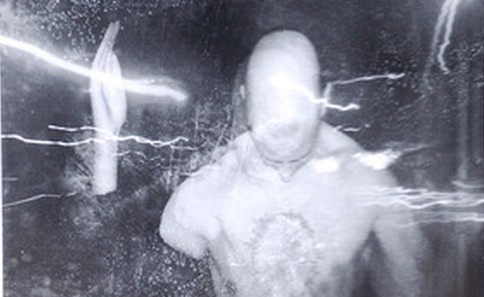What is Grotesque Noir?


Logically, grotesque noir can be defined by a mashup of the traits that define grotesque and noir separately, so perhaps we can best define the combined term by investigating the individual components.
What is noir fiction?
Noir fiction is not so much a genre as it is an overlay to existing genres. Most people probably think of early black and white detective films as representative of noir, and while those films may represent some of the overlay’s qualities, in truth film noir can generally be more accurately (more specifically) categorized as detective noir or mystery noir. So what exactly is this mysterious noir overlay? There are a few fantastic attempts at definition out there. A couple of the most important, I think, are:
From Noir Fiction Is About Losers, Not Private Eyes by Otto Penzler:
Noir is about losers. The characters in these existential, nihilistic tales are doomed. They may not die, but they probably should, as the life that awaits them is certain to be so ugly, so lost and lonely, that they’d be better off just curling up and getting it over with.
[Regarding the traditional private eye story, by contrast]…this rather cynical figure–underpaid, disrespected, threatened, shot at, beaten up–has a code of ethics that guarantees he’ll do the best he can for his client, who’s probably lying to him anyway. A heroic figure stands at the center of the private eye novel; there are no heroic figures in noir fiction.
From The French Word for Bleak by Ray Banks:
Noir is about restraint. That might seem weird, considering the level of violence and depravity on display, but chances are, the violence is given time to simmer before it boils over and the depravity is confined within the protagonist’s head.
The great noir writers cared about their protagonists…And because they cared, their readers cared. It’s impossible for a reader to get into a character’s head if the writer hasn’t been there first.
Compassion. An empathetic connection. The reason we read fiction over non-fiction…So I really only have one rule for writing noir – write with compassion.
So why does noir fiction get dragged into the crime and detective genres so much? Because crime and detective fiction, by their very nature, depend on morality to tell a story. At some point in any crime or detective story the protagonist is going to have to wrestle with his ethical and moral affirmations. Pair this inevitability with the depraved characters generally populating a crime or detective story and the attributes of noir fiction tend to organically congeal into the crime or detective result.
What is grotesque fiction?
Like noir, grotesque is an overlay commonly attributed, but never fully represented by, an existing genre. For noir that genre is crime or detective. For grotesque that genre is horror.
So why does grotesque fiction get dragged into the horror genre so much? Because the term grotesque often conjurers images of the macrabe. While blood and guts can be grotesque, such images are not universally defined as such. Grotesque simple refers to something “skewed” or abnormal, though generally brings with it a visceral impact. Flannery O’Connor, for example, is often thought of as a writer of grotesque. Her story “Good Country People,” about a woman with a wooden leg and a thieving bible salesman is definitely grotesque, and there is no blood or monsters to speak of.
So, what is grotesque noir fiction?
Grotesque noir is fiction that takes the existential conflict of noir and applies the skewed or abnormal in order to further explore the already morally difficult path of its characters. Perhaps a few examples would help. The most successful contemporary grotesque noir novel that I can think of is Brian Evenson’s Last Days. Here we have a detective who must solve a murder by infiltrating an amputation fetish cult. The detective–mentally struggling with the idea of volunteer amputation, and how he must become a part of it (noir)–must ultimately dismember himself (grotesque) in order to solve his case.
Okay, Last Days is an obvious choice. So, what about a less obvious novel like Fight Club by Chuck Palahniuk? After all, moral struggle is still struggle, even if as a symptom of a mental illness. And as for grotesque, the book (and movie) is stuffed full. Willing self-brutalization, making soap from human fat, a man with “bitch tits;” Fight Club is more grotesque than just about any horror novel.
What do you think? Share your thoughts or examples in the comments below. Also, don’t forget to subscribe to this blog to receive new posts via email.
photo credit: the above image is a partial scan of Brian Evenson’s novella, Brotherhood of Mutilation, which is a precursor to Last Days.

